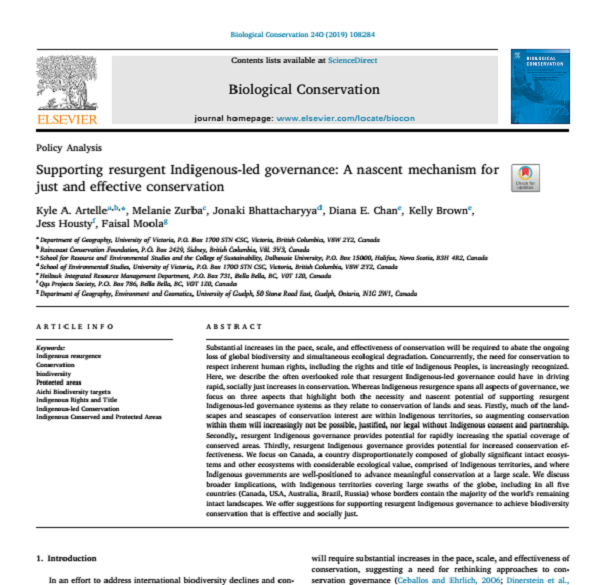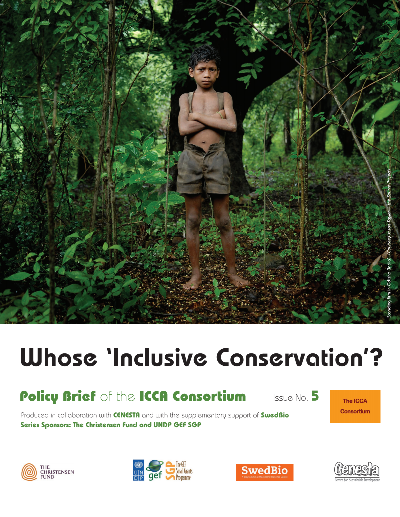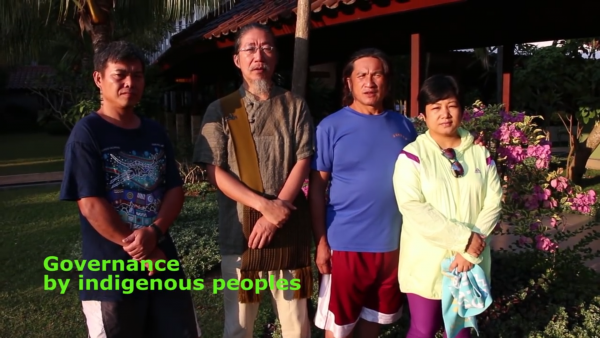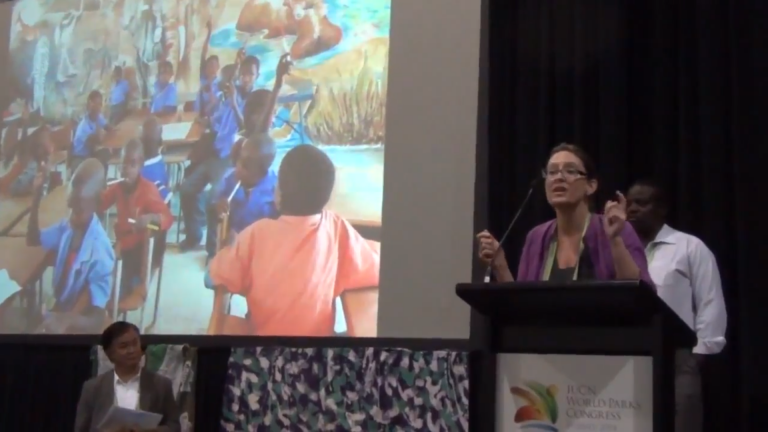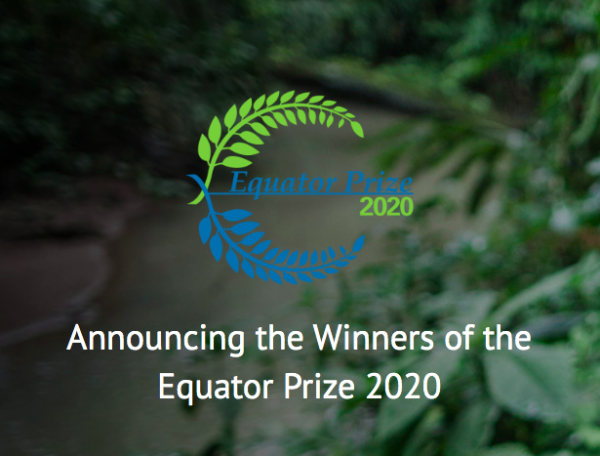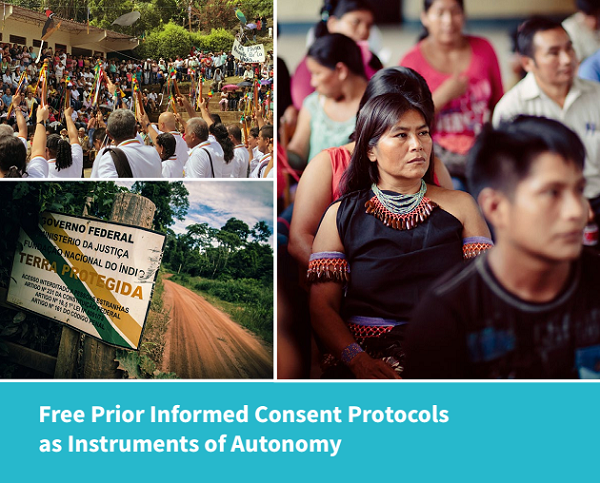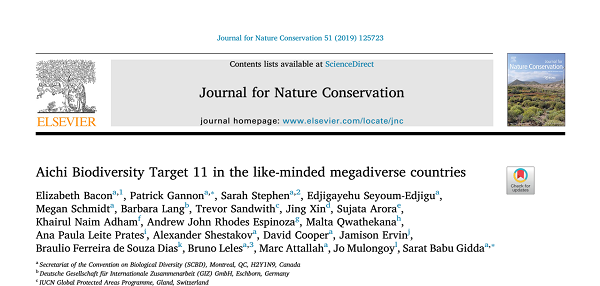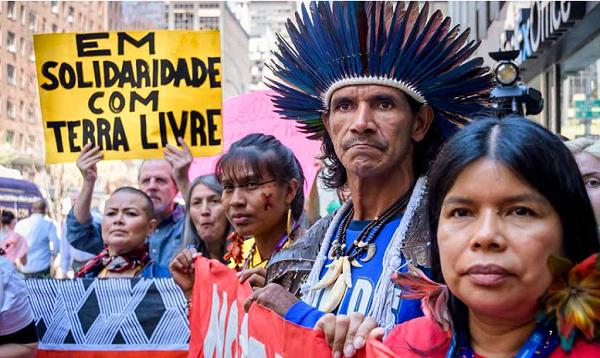The human impact on the planet is the result of innumerable conscious and unconscious decisions and actions that affect nature. In turn, these decisions and actions have to do with our own values and knowledge, and with our capacity to exercise power, authority and responsibility with direct relevance to nature. The one word that encapsulates all this is “governance”…
Supporting Resurgent Indigenous-led Governance: A Nascent Mechanism for Just and Effective Conservation
Supporting resurgent Indigenous-led governance: A nascent mechanism for just and effective conservation, by Kyle A.Artelle, Melanie Zurba, Jonaki Bhattacharyya, Diana E.Chan, Kelly Brown, Jess… Read more “Supporting Resurgent Indigenous-led Governance: A Nascent Mechanism for Just and Effective Conservation” ▸
ICCA Consortium Policy Brief no 5
The term ‘inclusive conservation’ has recently been adopted by the Global Environment Facility (GEF) in its 2018-2020 programme for biodiversity financing. In this context, the ICCA Consortium proposes a definition of ‘inclusive conservation’ and specific recommendations for legislators, policy makers and other conservation actors willing to pursue it. Read more ▸
The Heart of a Stream – three movies on governance for the conservation of nature
Together with GIZ (the German International Development Agency), UNDP GEF SGP, the IUCN Global Protected Area Programme and the Secretariat of the Convention on… Read more “The Heart of a Stream – three movies on governance for the conservation of nature” ▸
The Heart of a Stream – Movies – Part 2 – A stream on governance at the Sydney Parks Congress 2014
This second short movie takes you to the heart of the Stream on Enhancing Diversity, Quality and Vitality of Governance of the World Parks… Read more “The Heart of a Stream – Movies – Part 2 – A stream on governance at the Sydney Parks Congress 2014” ▸
Congratulations to the 2020 Equator Prize Winners!
We extend our heartfelt congratulations to all the winners — including the five Indigenous peoples and communities who are affiliated with the ICCA Consortium membership. Read more ▸
Defining Consent: Indigenous Peoples Reclaiming Decision-Making Authority and Governing Territories Through FPIC Protocols
ICCA Consortium Member Forest Peoples Programme released a new publication with three different case studies that show how Indigenous peoples have developed protocols for decision-making and territorial governance in Latin America (the Wampis, ICCA Consortium Member, the Juruna and the Embera Chami). Read more ▸
Aichi Biodiversity Target 11 In The Like-Minded Megadiverse Countries
This article, from the Journal for Nature Conservation, recognizes the central role of ICCAs – territories of life in conservation. It demonstrates that their recognition among academics is increasing dramatically. Read more ▸
Report : Enemies of the State? How Governments and Business Silence Land and Environmental Defenders
How is violence used against individuals and communities, mostly indigenous, who defend their lands and environment? This Global Witness report analyses 2018 key data and figures, along with human stories about the criminalisation and killings of land and environment defenders. Read more ▸
First published on 05/25/2016, and last updated on 01/16/2018

